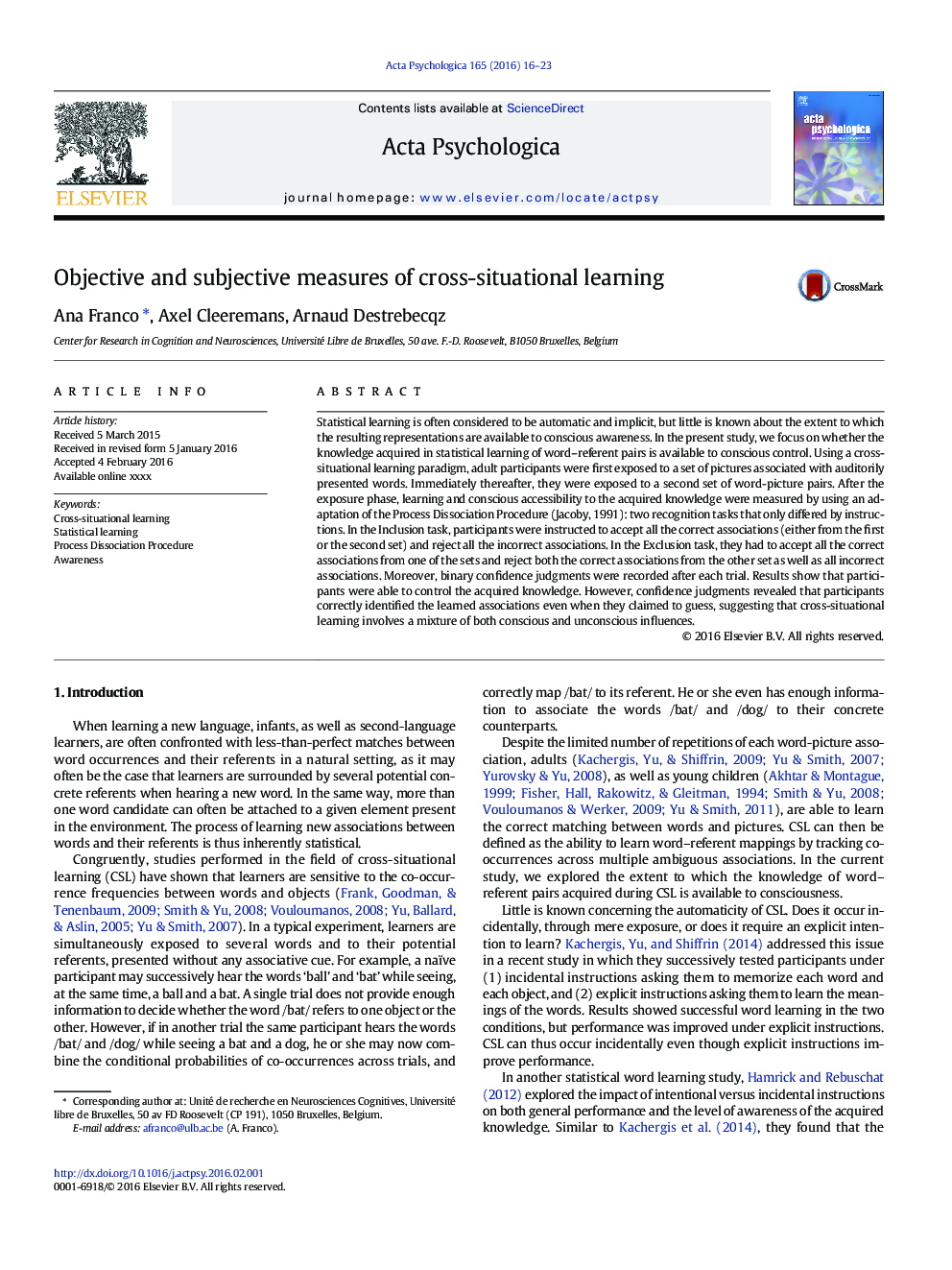| کد مقاله | کد نشریه | سال انتشار | مقاله انگلیسی | نسخه تمام متن |
|---|---|---|---|---|
| 919609 | 1473593 | 2016 | 8 صفحه PDF | دانلود رایگان |
عنوان انگلیسی مقاله ISI
Objective and subjective measures of cross-situational learning
ترجمه فارسی عنوان
معیارهای هدف و ذهنی یادگیری متقابل موقعیتی
دانلود مقاله + سفارش ترجمه
دانلود مقاله ISI انگلیسی
رایگان برای ایرانیان
کلمات کلیدی
یادگیری متقابل، یادگیری آماری، روند تجزیه فرآیند، اطلاع،
موضوعات مرتبط
علوم زیستی و بیوفناوری
علم عصب شناسی
علوم اعصاب شناختی
چکیده انگلیسی
Statistical learning is often considered to be automatic and implicit, but little is known about the extent to which the resulting representations are available to conscious awareness. In the present study, we focus on whether the knowledge acquired in statistical learning of word-referent pairs is available to conscious control. Using a cross-situational learning paradigm, adult participants were first exposed to a set of pictures associated with auditorily presented words. Immediately thereafter, they were exposed to a second set of word-picture pairs. After the exposure phase, learning and conscious accessibility to the acquired knowledge were measured by using an adaptation of the Process Dissociation Procedure (Jacoby, 1991): two recognition tasks that only differed by instructions. In the Inclusion task, participants were instructed to accept all the correct associations (either from the first or the second set) and reject all the incorrect associations. In the Exclusion task, they had to accept all the correct associations from one of the sets and reject both the correct associations from the other set as well as all incorrect associations. Moreover, binary confidence judgments were recorded after each trial. Results show that participants were able to control the acquired knowledge. However, confidence judgments revealed that participants correctly identified the learned associations even when they claimed to guess, suggesting that cross-situational learning involves a mixture of both conscious and unconscious influences.
ناشر
Database: Elsevier - ScienceDirect (ساینس دایرکت)
Journal: Acta Psychologica - Volume 165, March 2016, Pages 16-23
Journal: Acta Psychologica - Volume 165, March 2016, Pages 16-23
نویسندگان
Ana Franco, Axel Cleeremans, Arnaud Destrebecqz,
